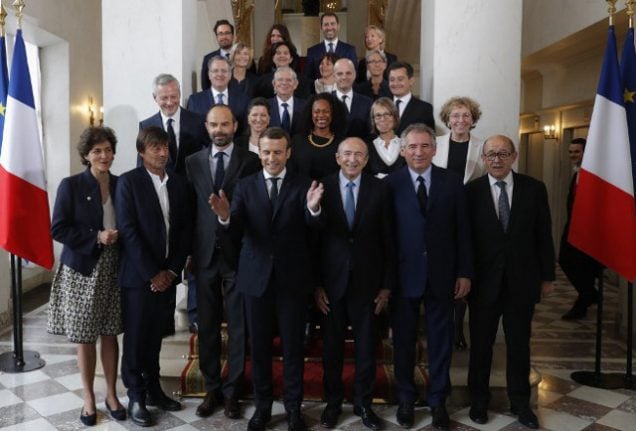Marielle de Sarnez lodged a slander complaint against an MEP of France's National Front (FN) party who accused her and 18 other colleagues of diverting funds available for parliamentary assistants.
The accusations by Sophie Montel, made in letters to the EU fraud watchdog and Paris prosecutors, prompted the prosecutors to open an initial investigation on March 22 into possible breach of trust.
AFP reported on the letter and the probe in early April, but the MEPs were not identified at the time.
The imbroglio comes days after another minister in Macron's first cabinet, Richard Ferrand, escaped an investigation into claims that he benefited from a property deal while he ran a public health insurance fund.
READ ALSO:
- First whiff of scandal hits Macron new government
- All you need to know about Emmanuel Macron's new French government

The allegations have embarrassed Macron's fledgling government as it prepares a new law to clean up politics.
The Paris daily Le Parisien ran a banner headline on its cover Tuesday asking, “What about that ethics cleanup?”
De Sarnez, who joined the European Parliament in 1999, gave up her seat when she entered the government led by Prime Minister Edouard Philippe on May 17.
On Monday she denied any wrongdoing with regards to a part-time parliamentary aide in her employ, saying: “Her situation was declared and verified by the European Parliament.”
A European Parliament source told AFP in Brussels that the assistant's “other activities… were seen as not posing a risk of a conflict of interest.”
The FN, meanwhile, faces accusations by the European Parliament of using funds allotted for parliamentary assistants to pay FN staff members for party work in France.
In February, the assembly began withholding part of its pay to the party's leader, Marine Le Pen, to recover the money it says it lost to the alleged fraud.
The fingering of de Sarnez by Montel is “clearly a counter-attack by the National Front which bent the rules of the parliament in a wholesale way”, French ecology MEP Eva Joly told AFP.
Montel, for her part, told French television: “De Sarnez can do what she likes.”




 Please whitelist us to continue reading.
Please whitelist us to continue reading.
Member comments